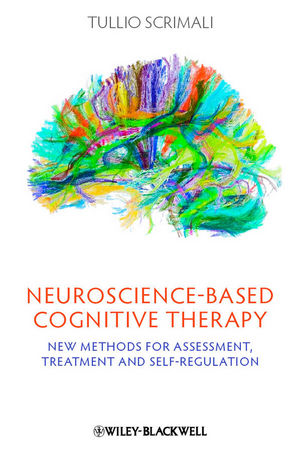Neurosciencebased Cognitive Therapy New Methods For Assessment Treatment And Selfregulation Tullio Scrimaliauth by Tullio Scrimali(auth.) 9781119943181, 9781119993759, 1119943183, 111999375X instant download after payment.
A pioneer of CBT explores recent advances in neuroscience, showing how they can be applied in practice to improve the effectiveness of cognitive therapy for clients with a wide range of diagnoses including mood disorders, anxiety disorders, eating disorders and schizophrenia
- Utilizes the latest advances in neuroscience to introduce tools that allow clinicians, for the first time, to directly ‘measure' the effectiveness of cognitive therapy interventions
- Rigorously based in neuroscientific research, yet designed to be readable and jargon-free for a professional market of CBT practitioners
- Covers theory, assessment, and the treatment of a wide range of specific disorders including anxiety disorders, mood disorders, eating disorders, addictions and schizophrenia
- Written by a respected pioneer in the field
Content:
Chapter 1 Neuroscience, Clinical Psychology, and Cognitive Therapy (pages 1–10):
Chapter 2 The Mind–Brain Problem (pages 11–19):
Chapter 3 Motor Theories of Mind and a Complex Biocybernetic Model in Neuroscience (pages 20–26):
Chapter 4 Complexity, Chaos, and Dynamical Systems (pages 27–34):
Chapter 5 Modular and Gradiental Brain, Coalitional Mind (pages 35–69):
Chapter 6 Phylogenesis of the Brain and Ontogenesis of the Mind: Biological and Cultural Evolutionism (pages 70–79):
Chapter 7 Psychophysiology and Clinical Psychophysiology (pages 81–85):
Chapter 8 Electroencephalography and Quantitative Electroencephalography (pages 86–95):
Chapter 9 Electrodermal Activity and Quantitative Electrodermal Activity (pages 96–115):
Chapter 10 Complex Psychological Diagnosis and Instrumental Psychodiagnostics (pages 116–121):
Chapter 11 Complex Psychological Diagnosis with Quantitative Electroencephalography (pages 123–134):
Chapter 12 Complex Psychological Diagnosis with Quantitative Electrodermal Activity (pages 135–144):
Chapter 13 Sets and Settings when Applying a Neuroscience?based Clinical Methodology (pages 145–151):
Chapter 14 Multimodal Assessment of Family Process and the “Family Strange Situation” (pages 152–155):
Chapter 15 Biofeedback, Neurofeedback, and Psychofeedback (pages 156–170):
Chapter 16 Meditation, Mindfulness, and Biofeedback?based Mindfulness (BBM) (pages 171–179):
Chapter 17 Neurofeedback and Cognitive Therapy (pages 180–188):
Chapter 18 Psychofeedback and Cognitive Therapy (pages 189–193):
Chapter 19 Monitoring the Warning Signs of Relapse in Schizophrenia and Bipolar Disorder, and Coping with Them (pages 194–196):
Chapter 20 Get Started with Neuroscience?based Cognitive Therapy (pages 197–198):


